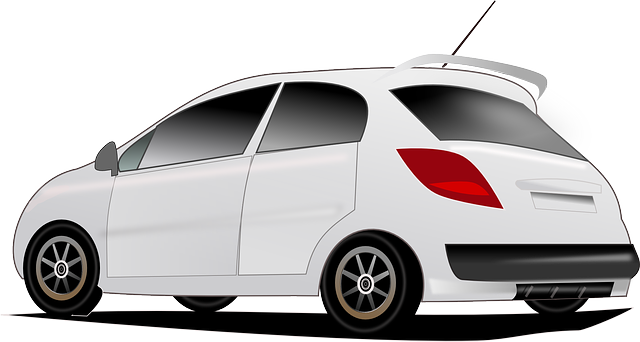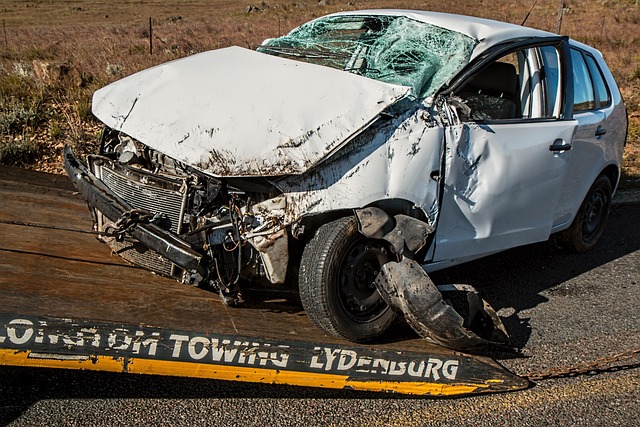Car insurance is a crucial safety net, offering protection against unforeseen events like accidents. Policies include liability, collision, and comprehensive coverage with varying exclusions. Understanding these types and reviewing policy details is key to making informed decisions. After an accident, immediate notification of the insurer initiates a process covering repair costs, medical bills, and legal fees. Adequate car insurance includes Uninsured/Underinsured Motorist Protection (UIM) and Personal Injury Protection (PIP), providing financial security for drivers and passengers. Promptly initiating claims and ensuring thorough documentation is vital for efficient resolution and fair compensation.
In the event of a car accident, understanding your car insurance coverage is crucial for navigating financial and legal complexities. This comprehensive guide delves into the intricacies of car insurance policies, empowering drivers to make informed decisions. From comprehending key coverages like liability, collision, and comprehensive, to exploring essential protections like Uninsured/Underinsured Motorist and Personal Injury Protection (PIP), this article covers it all. Discover how your policy can assist with repair bills, medical expenses, legal costs, and claim filing processes, while also highlighting common mistakes to avoid during the claims journey.
Understanding Car Insurance: What It Covers and What It Doesn't

Car insurance is a safety net that protects individuals and their vehicles in case of unforeseen events, particularly car accidents. It’s crucial to understand what your policy covers and what it doesn’t to ensure adequate protection. Car insurance typically includes liability coverage, which compensates for damage or injury caused to others in an accident, and collision coverage, which pays for repairs or replacement of your vehicle after a crash.
However, car insurance does not cover all circumstances. Exclusions may include damages caused by drunk driving, willful destruction, or natural disasters. It’s essential to review your policy details carefully, considering additional coverage options like comprehensive insurance, which protects against various non-collision events like theft or vandalism. Understanding these nuances empowers you to make informed decisions regarding your automotive protection.
Types of Car Accident Coverage: Liability, Collision, and Comprehensive

Car accidents can be unpredictable and costly events, but understanding your car insurance coverage can help ease the financial burden. There are three primary types of car accident coverage that drivers should know about: liability, collision, and comprehensive.
Liability coverage is a crucial component of any car insurance policy. It protects you against claims made by others if you’re found at fault in an accident. This includes medical expenses and property damage for which you might be held responsible. Collision coverage, on the other hand, pays for repairs or replacement of your vehicle if it’s damaged in a crash, regardless of who’s at fault. Comprehensive insurance is designed to cover various incidents beyond accidents, such as theft, vandalism, natural disasters, and animal-related damages. It protects your investment in full, up to the policy limits.
How Does Your Policy Pay for Repair and Medical Bills After an Accident?

After a car accident, your Car Insurance policy steps in to cover the costs of repair and medical bills. The process typically begins with notification to your insurance provider as soon as possible. They will assign an adjuster who will assess the damage to both vehicles and any injuries sustained. The adjuster will then determine the cost of repairs based on estimates from trusted auto body shops, ensuring that only necessary repairs are covered.
For medical bills, your policy should cover expenses related to treatment for injuries caused by the accident. This includes hospital stays, doctor visits, physical therapy, and prescription medications. It’s important to keep all receipts and documentation organized for easy reimbursement claims with your Car Insurance provider.
Uninsured and Underinsured Motorist Protection: Protecting Yourself from Financial Loss

In today’s world, having adequate car insurance is non-negotiable for every driver. One crucial aspect often overlooked in this process is Uninsured and Underinsured Motorist Protection (UIM). This coverage is designed to safeguard you financially when dealing with accidents caused by drivers who have insufficient or no insurance at all. As a responsible driver, protecting yourself from potential financial losses should be a top priority.
Car insurance policies with UIM ensure that you receive compensation for medical expenses and damages even if the at-fault driver does not have sufficient coverage. This is particularly important because without it, you could find yourself bearing the brunt of these costs out of pocket. By adding this protection to your policy, you’re taking a proactive step towards financial security should an accident occur due to another driver’s negligence or lack of insurance.
Personal Injury Protection (PIP): Coverage for You and Your Passengers

Personal Injury Protection (PIP) is a crucial component of car insurance that provides financial security for you and your passengers in the event of a car accident. This coverage is designed to help with medical expenses, lost wages, and other related costs regardless of who was at fault. In many states, PIP is mandatory, ensuring that all drivers have access to essential protection.
When you purchase car insurance, PIP covers immediate medical needs and can include services like ambulance rides, hospital stays, doctor visits, and rehabilitation. Additionally, it extends protection to passengers in your vehicle, offering them the same level of care and compensation as the driver. This comprehensive approach ensures that everyone involved in an accident receives the necessary support during a potentially challenging time.
Legal Expenses and Accident-Related Court Costs: What Your Insurance Can Help With

When a car accident occurs, legal expenses and court costs can quickly accumulate, adding significant stress to an already challenging situation. Thankfully, your car insurance policy is designed to provide coverage for these unforeseen outlays. Legal fees associated with personal injury cases, including attorney’s fees, are often covered under the liability section of your policy. Additionally, many policies include provisions for accident-related court costs, such as filing fees and witness expenses.
Understanding what your car insurance will cover in terms of legal expenses can be crucial in managing the financial burden following an accident. It’s important to review your policy documents carefully to familiarize yourself with these benefits. In the event of a claim, your insurance company can guide you through the process and help navigate the complexities of legal procedures related to the accident.
How to File a Claim with Your Car Insurance Provider After an Accident

After a car accident, the process of filing a claim with your car insurance provider is crucial for ensuring proper coverage and resolution. Begin by checking your policy for specific details regarding claims procedures and timeframes. Most car insurance policies require immediate notification of an accident, typically within a few days. Contact your insurer as soon as possible to report the incident, providing them with essential details like dates, locations, and a brief description of what happened.
Next, gather all necessary information from the other driver involved, including their name, contact details, insurance policy number, and vehicle registration. Document any damages to your vehicle by taking photos and keep records of any medical expenses incurred as a result of the accident. Your car insurance provider will guide you through the next steps, which may include submitting a formal claim, providing police reports, and possibly attending a claims interview.
Common Mistakes to Avoid When Dealing with Car Accident Insurance Claims

When dealing with car accident insurance claims, it’s crucial to steer clear of certain mistakes that could negatively impact your settlement. One common error is failing to document all damages and expenses thoroughly. This includes both immediate physical injuries and subsequent medical bills, as well as property damage assessments. Without complete and accurate records, your claim may be undervalued or denied.
Another mistake is rushing to accept the first offer presented by an insurance company. Before making any decisions, consult with a reputable attorney or insurance adjuster to understand the full extent of your coverage and the value of your claim. Hasty agreements can result in settling for less than you deserve, especially considering that car insurance policies often have complex provisions and exclusions.
